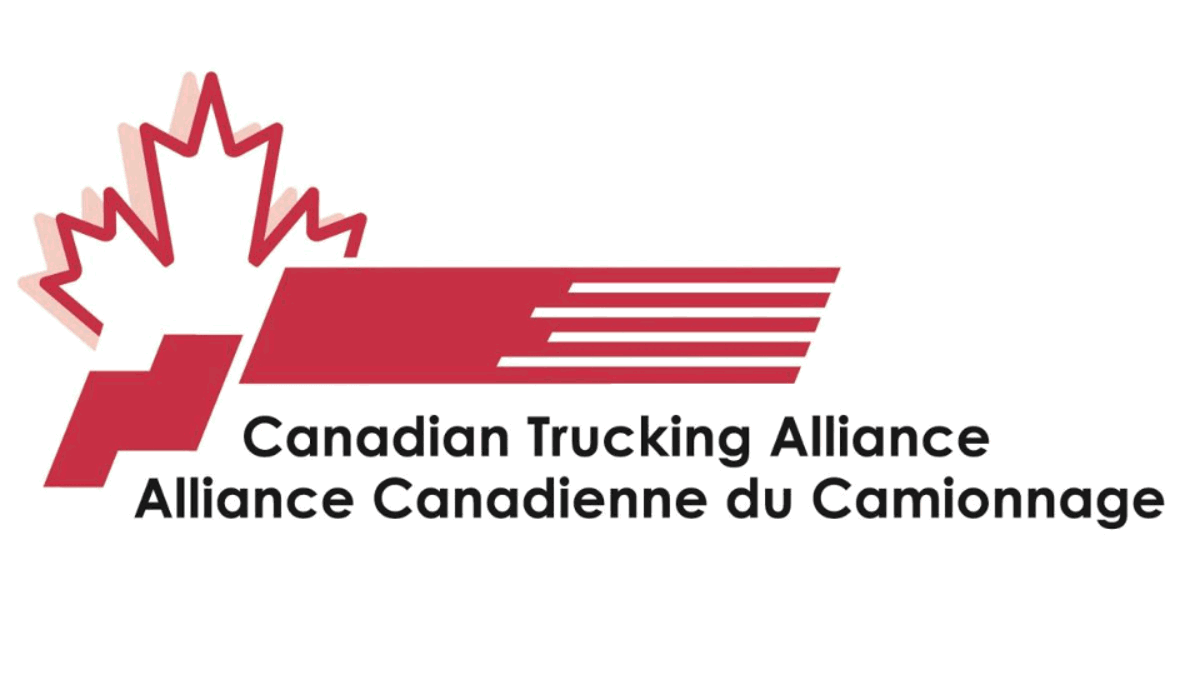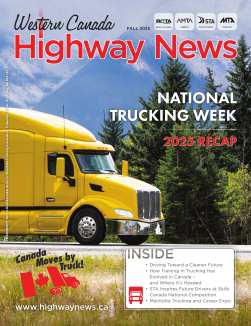
CTA: Battling Trucking’s Illegal Segment Could Help Relieve Some US Security Concerns
February 5, 2025
The Canadian Trucking Alliance (CTA) is offering Ottawa, the provinces and Washington the trucking industry’s assistance and recommendations in the war against organized crime, money laundering and drugs smuggling present in the international supply chain and cross-border trade.

Yesterday, it was reported US President Trump will hold off on levying 25 percent tariffs on Canada for at least 30 days after Canada agreed to “reinforce the border” with new equipment and technology, enhance coordination with the U.S., and increase resources to stop the flow of illegal drugs.
“Senior US officials are calling this a drug war, not a trade war. We now have 30 days to address these issues and work together to implement tools and solutions that could help us avoid economic disaster,” says Stephen Laskowski, President of the CTA.
“Relatedly, CTA, as well as major trade unions, have worked tirelessly for close to a decade to bring light to criminal activity in the domestic and international trucking industry. We have pleaded with Ottawa to join us in the war against the underground economy ripe with compliance and labour corruption, among other illicit behaviours, which is becoming more pervasive in our industry. The time to act is now.”
Yesterday, President Trump’s economic adviser, Peter Navarro, told reporters in Washington that this is not a trade war, but "a drug war," adding that Canada had to address the international drug trade in Canada. Specifically, Navarro pointed to the use of small parcel deliveries to export illicit drugs from Canada, as well as “the porous visa routines of Canada.”
CTA has been telling the provinces for years how the immigration system acts as a pipeline for highly organized and profitable labour trafficking and abuse of truck drivers new to Canada. The system is also vulnerable to domestic and international gross abuses of Canada’s temporary foreign worker program (TFWP) and the issuance of labour market impact assessments LMIAs, which ultimately lead to drivers engaged in the U.S. visa system so they can transport goods across the Canada-US border.
“The majority of our fleets use immigration programs properly. Although the Canadian system is designed for people and businesses who intend to follow the law, the reality is we have a rapidly growing percentage of fleet owners whose business model is built around circumventing the rules, finding loopholes, and taking advantage of a system that does not have enough oversight to deal with the sheer scope of these illegal activities,” said Laskowski.
CTA has heard numerous reports of Canadian truck drivers going through the U.S. visa screening and interview process who are reportedly being forced to work at wages 30 years out of date. Many of these drivers also face “head taxes” in the $50,000-$100,000 range, strung along by the promise of permanent residency or threatened with deportation or worse, if they do not comply with their employer’s demands.
“We believe these drivers are very vulnerable and, in some cases, could be forced or manipulated into being involved in criminal activity, including knowingly or unknowingly, smuggling of drugs,” says Laskowski. “The problem has grown over the years because it has gone unchecked for so long.”
Although drugs such as fentanyl used in a hospital setting are not moved by truck, marijuana can be moved domestically, and the CBSA continues to intercept illicit narcotics, such as cocaine, moving by truck and other modes at the Canada-U.S. border.
The Alliance believes it is not a stretch that trucking fleets who are imbedded in the underground market and engaged in gross non-compliance of essentially all labour, tax and safety laws and industry regulations would also be at much greater risk of being involved in many other illegal activities, like drug smuggling.
On the surface, it is highly questionable how some of these companies vastly outpace the market. While most compliant companies struggle to maintain their fleets in the face of runaway inflation; skyrocketing equipment, fuel and labour costs; increasing regulations and unfair competition, there are some fleets that are somehow able to gain market share, add new trucks and drivers in the most depressed freight market in 30 years.
“There is a fundamental conflict here – the current freight market and supply chain economics cannot support some of the growth we are seeing in certain segments of the industry. The math simply doesn’t add up.”
Many companies involved in labour misclassification –termed Driver Inc. – and other noncompliance-based schemes already engage in a range of illegal activity to lower costs and increase profitability, ranging from wage theft and gross labour code noncompliance to gross tax evasion and questionable insurance practices. Skirting truck safety rules and training requirements is also part of the scheme that leads to increased collisions and unsafe highways.
“As US officials look to mitigate risk from those who are involved in a wide range of illegal activities in the cross-border supply chain, it would make the most sense for Ottawa and the provinces to help out by enhancing enforcement efforts and increase scrutiny of those we already know are routinely engaged in illegal activities and gross patterns of noncompliance with Canadian laws,” says Laskowski. “We believe that precision and focused efforts by enforcement will have an exponential impact on restoring order and confidence in the industry and supply chain.”
“It’s time to deal with systemic noncompliance once and for all and show Canadians and our US trading partners that Canada’s truck trade moves by companies and drivers that take security and compliance seriously and follow all the rules.”
More inaction on Canada’s part will only further lead the Americans to have serious concerns about Canada’s ability to manage and address these issues domestically.
“The CTA has a plan to help deal with this situation, and we implore both Ottawa and the provinces and territories to stop paying lip service to security and compliance, and act swiftly and meaningfully to address this worsening crisis that has been threatening our industry for years and is now, in part, putting our entire economy at risk.”
Certified Transportation Safety Professional
Ease your Mind
Do you have a trusted employee ready to be elevated to the next level? The Certified Transportation Safety Professional (CTSP) designation provides the gateway to manage a trucking company safety and compliance program.
Categories | Cross Border
Tags | Advocacy, Business Operations, Cross Border, Economy, Government, News Releases, Supply Chain, USA





